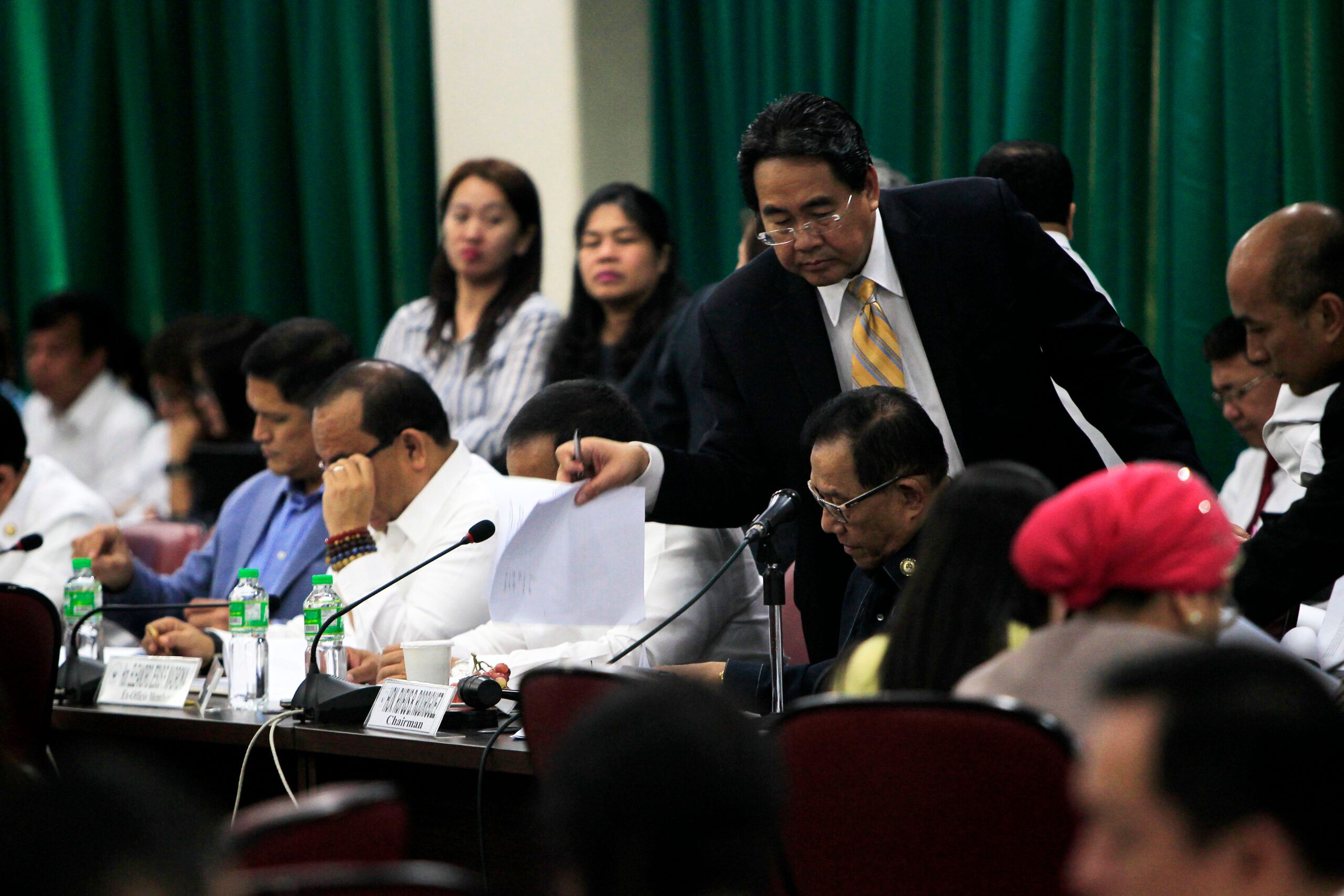SUMMARY
This is AI generated summarization, which may have errors. For context, always refer to the full article.

MANILA, Philippines (UPDATED) – One step closer.
Voting 50-17-1, the House of Representatives on Wednesday, May 20, approved the proposed Bangsamoro basic law (BBL) at the committee level after a two-day marathon provision-by-provision voting on the bill. (READ: How House committee members voted on the BBL)
The proposed law will be referred to the House committee on appopriations and the committee on ways and means before it goes to plenary. The two committees will discuss and approve the budgetary and tax features of the the proposed Bangsamoro autonomous region.
House ad hoc committee chair Cagayan de Oro Representative Rufus Rodriguez said they expect the bill to be discussed in plenary on Wednesday, May 27.
Under the final draft approved by the committee, the BBL will now be called the “Basic Law of the Bangsamoro Autonomous Region.” (HIGHLIGHTS: House committee votes on Bangsamoro Basic Law)
A product of the peace deal between the government and rebel group Moro Islamic Liberation Front (MILF), the BBL seeks to create a new autonomous region in Muslim Mindanao with greater powers and resources than the current one in place.
The proposed Bangsamoro autonomous region will be parliamentary in form – the only of its kind in a country with a unitary presidential system. It is also designed to get automatic appropriations, similar to the internal revenue allotment (IRA) of local government units. (READ: How different is ARMM from the Bangsamoro?)
The House ad hoc committee held over 40 public hearings prior to voting but the scheduled vote on Monday, May 11, was moved after allies of President Benigno Aquino III filed last-minute amendments. On the day of the voting, lawmakers received a new consolidated BBL draft, which contained middle-ground amendments that were discussed between a meeting with House leaders and President Aquino prior to the voting.
Tight deadline
The fate of the BBL was placed in doubt following the political fallout from the clash in Mamasapano, Maguindanao, which killed 67 Filipinos. Discussions on the bill were suspended for about two months, narrowing the window to pass the bill.
As the clock ticks on the BBL, the House of Representatives has 3 weeks to debate it on the floor to beat the target deadline of passing the law by June 11, the last day of the 2nd regular session.
Over at the Senate, local government committee chair Senator Ferdinand Marcos Jr has given no indication that he will push to meet the target deadline.
Marcos will still hold a final public hearing on Monday, May 25. Citing sentiments by rebel group Moro National Liberation Front (MNLF) that it was left out of the process, Marcos said Tuesday Malacañang should stop imposing deadlines on a law that is “so complicated” and “so complex.”
Amid a tight deadline, Senate President Franklin Drilon earlier said all 24 senators would be given the chance to participate in the plenary debate.
While the 294-member House of Representatives created a 75-member super committee to deliberate the bill before going to plenary, most senators have yet to participate in BBL discussions at committee level.
Although Senate President Franklin Drilon has given assurances that the law would be passed before Congress adjourns session on June 11, Marcos expressed doubts that the law would be passed at all.
Marcos said the 2016 elections will be at top of legislators’ priorities when Congress resumes session in July to witness the final State of the Nation Address of President Benigno Aquino III.
The legislative deliberations for the BBL marks the 2nd stage of the peace process, which would require the passage of the proposed law in Congress and a plebiscite in identified areas.
Once the BBL is ratified in the plebiscite, an MILF-led transition government will take over until the election of the first set of officials in 2016.
The plebiscite will be conducted in the following core areas: 5 provinces in the ARMM (Sulu, Tawi-Tawi, Basilan, Maguindanao, Lanao del Sur); 6 municipalities in Lano Del Norte; and barangays in the municipalities of Kabacan, Carmen, Aleosan, Pigkawayan, Pikit, Midsayap that voted yes to the ARMM plebiscite in 2001. – Rappler.com
Add a comment
How does this make you feel?
There are no comments yet. Add your comment to start the conversation.